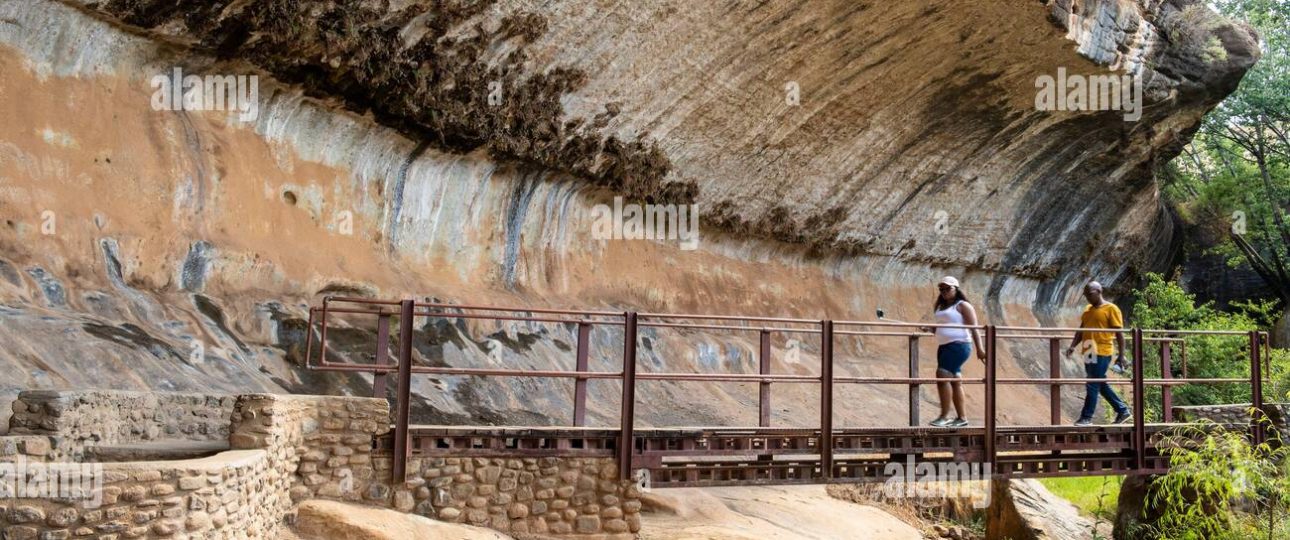Liphofung Caves: Exploring Lesotho’s Historical Site
The Liphofung Caves hold a significant place in Lesotho’s history. Located in a tributary-stream valley of the Hololo River, this site is part of the Lesotho Highlands Development Authority reserves, covering about 4.5 hectares (11 acres). The caves are a large overhang in the Clarens sandstone, typical of the Lesotho lowlands region.
Historical and Cultural Significance
The Liphofung Caves have been a shelter and cultural site for various groups over the centuries. Originally used by the San people and other Neolithic inhabitants, the caves contain important rock art and a rich archaeological deposit of Stone Age implements. Later, King Moshoeshoe the Great used the site as a stopover during his travels.
Today, the caves serve as a historical site with a visitors’ center that showcases Basotho culture and San rock art. The center includes displays, restrooms, and a small shop offering light refreshments. The site is popular among school groups and tourists heading to Oxbow.
Geological Features
Beyond its cultural significance, the Liphofung site offers various geological features. The surrounding areas provide a chance to observe the traditional Basotho way of life, as the ‘Moteng Valley is densely populated.
Visiting Liphofung Caves
Best Time to Visit
The ideal time to visit the Liphofung Caves is during the dry season, from May to September. During these months, the weather is mild, making it suitable for outdoor exploration. Be prepared for cold temperatures if visiting in winter.
How to Get There
The caves are located off the main route from Butha-Buthe to Oxbow and Mokhotlong. Access is via a concrete road passable for all vehicles. If flying into Lesotho, land at Moshoeshoe I International Airport in Maseru, then hire a car or take a taxi to the site. Alternatively, drive from Johannesburg, South Africa, which takes about 4-5 hours, depending on traffic and road conditions. Ensure you have the necessary documents for border crossing.
Local Transportation
Once at the site, taxis and car rentals are available in nearby towns. For a more immersive experience, consider a guided tour with local experts who can provide insights into the region’s landscapes and cultural heritage.




